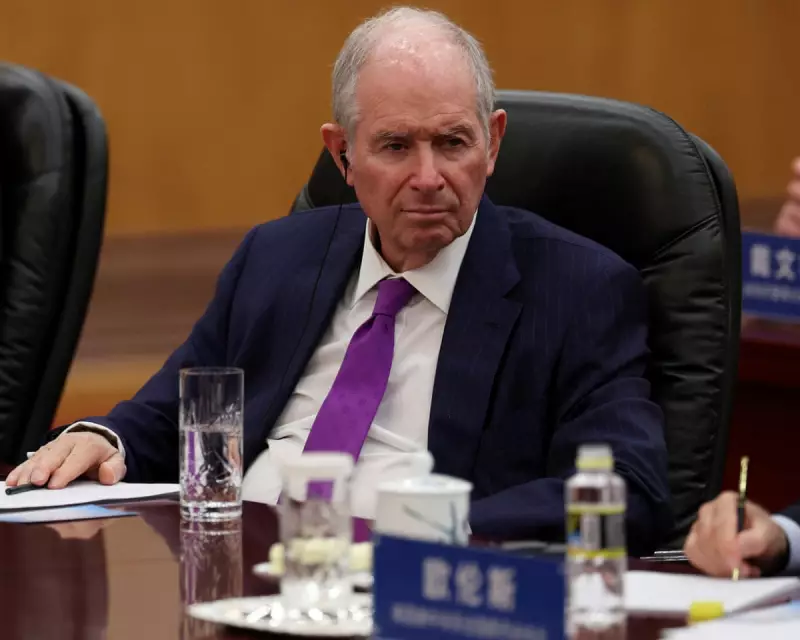
Stephen Schwarzman, the billionaire chief of private equity giant Blackstone and a prominent supporter of Donald Trump, has been plunged into a major environmental scandal at his UK estate. The financier stands accused of preventing a local reservoir from replenishing a drought-hit lake on his property, despite a severe water shortage affecting the surrounding region.
The controversy centres on the Queen's Eyot reservoir, which was poised to release millions of litres of water to raise critically low levels in the nearby lake on Schwarzman's Wytham Estate in Oxfordshire. However, according to local sources and environmental officials, the plan was abruptly blocked following direct intervention from the billionaire's estate management.
A Crisis of Priorities: Private Luxury vs Public Need
This alleged intervention occurred during a period of official drought, a status declared by the Environment Agency after one of the driest winters on record. While local residents faced the prospect of hosepipe bans and conservation measures, the decision ensured the lake—a private feature of the sprawling estate—remained largely untouched by the crisis.
The move has ignited a firestorm of criticism, framing a stark narrative of wealth and privilege in the face of a collective environmental emergency. Critics argue it represents a blatant example of the super-rich insulating themselves from the consequences of climate change, often at the expense of the wider community.
Estate Management and Official Response
Representatives for the Wytham Estate have defended the decision, claiming the proposed water transfer from the reservoir was "unnecessary" and that the lake's ecosystem was being managed appropriately. They stated the move was to "protect the reservoir's own ecological integrity."
However, this explanation has been met with scepticism by local environmental groups and the agency responsible for the reservoir's management. Thames Water, which was involved in the discussions, has confirmed that a request to use the reservoir's water was indeed denied by the estate, a decision they were legally obliged to follow.
Broader Implications for Water Rights and Scrutiny
The incident raises profound questions about water rights and land ownership in the UK. It highlights how large, private estates can control vital water resources, even in times of national crisis, and exposes potential weaknesses in regulatory frameworks designed to ensure fair distribution.
As climate change increases the frequency and severity of droughts, this case is likely to fuel the debate over whether water should be treated as a public good rather than a private asset. The scandal has also drawn renewed attention to Schwarzman's political affiliations, linking a domestic environmental issue to the broader, fiercely divided landscape of US politics.





